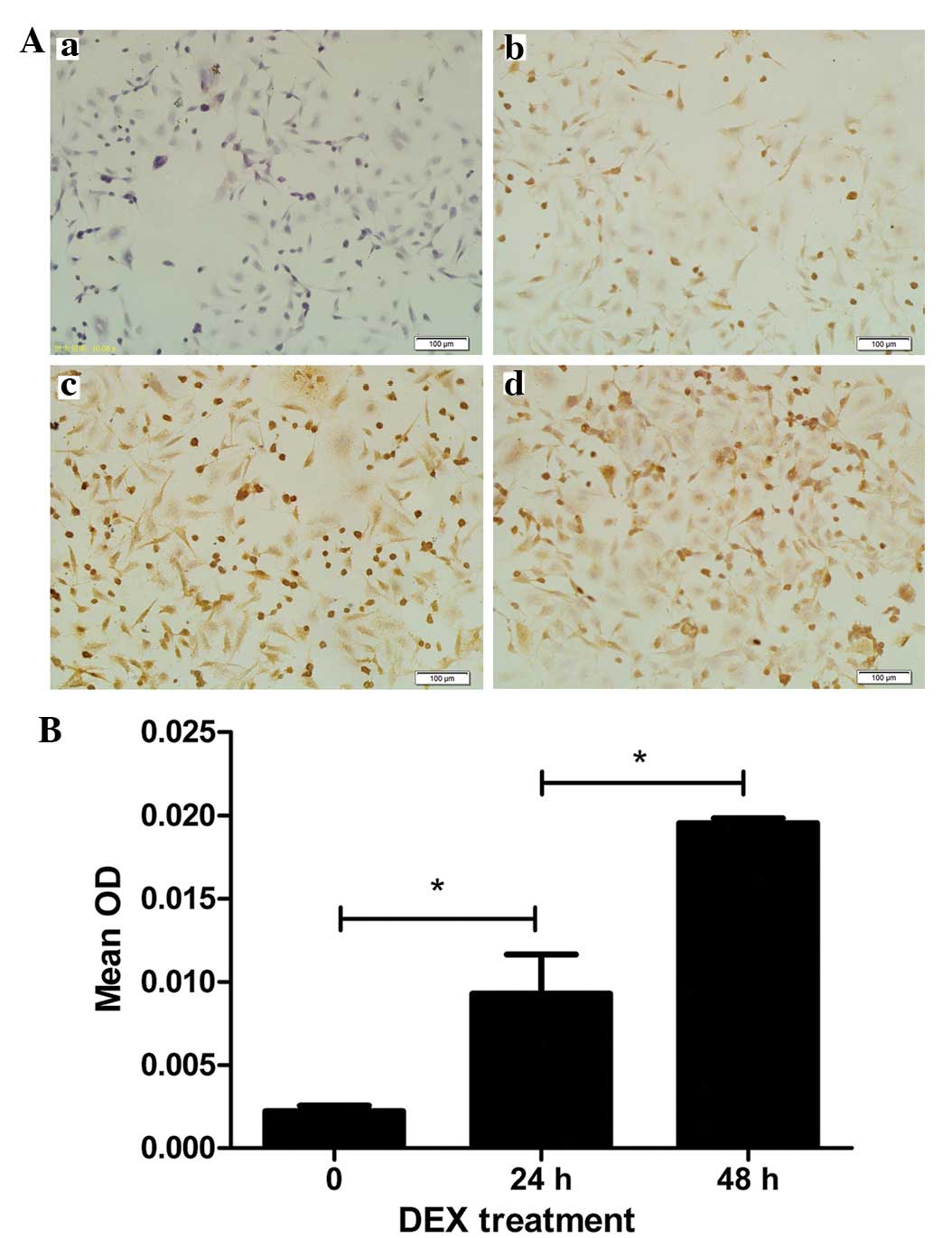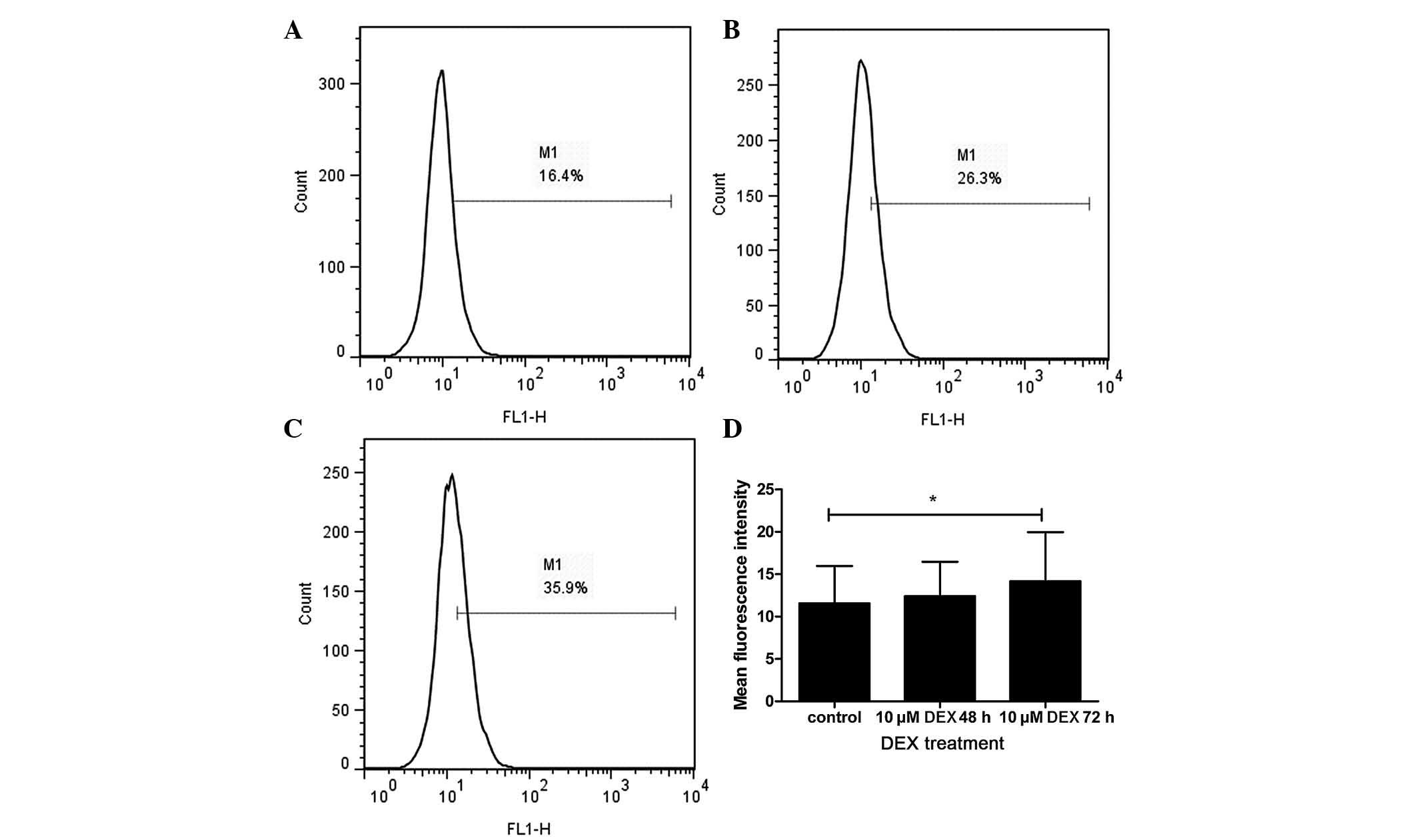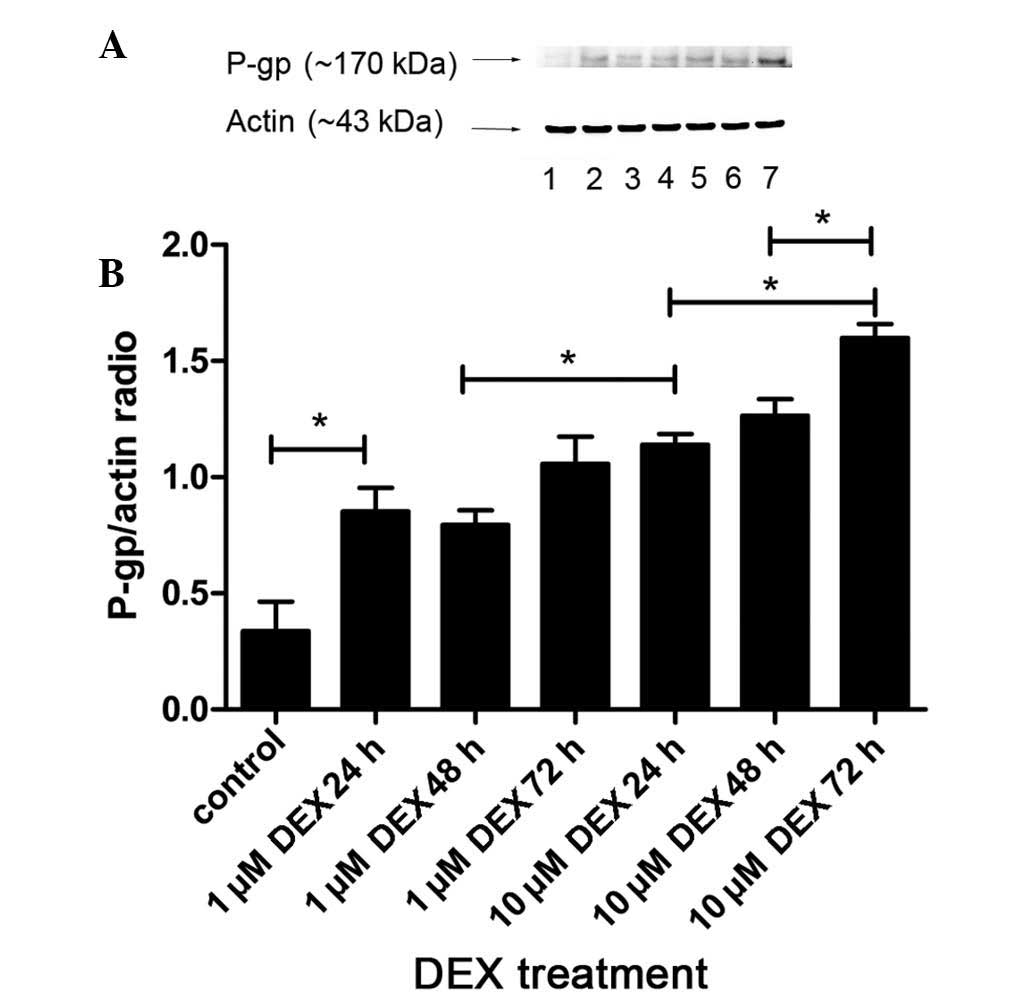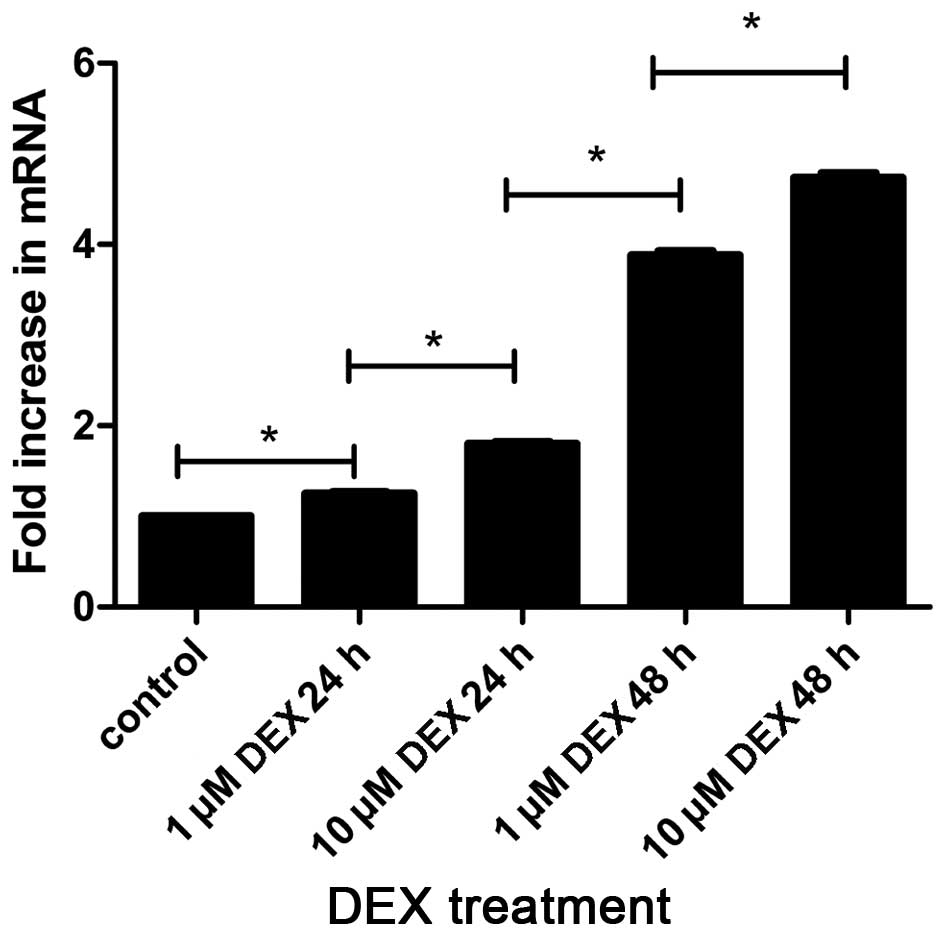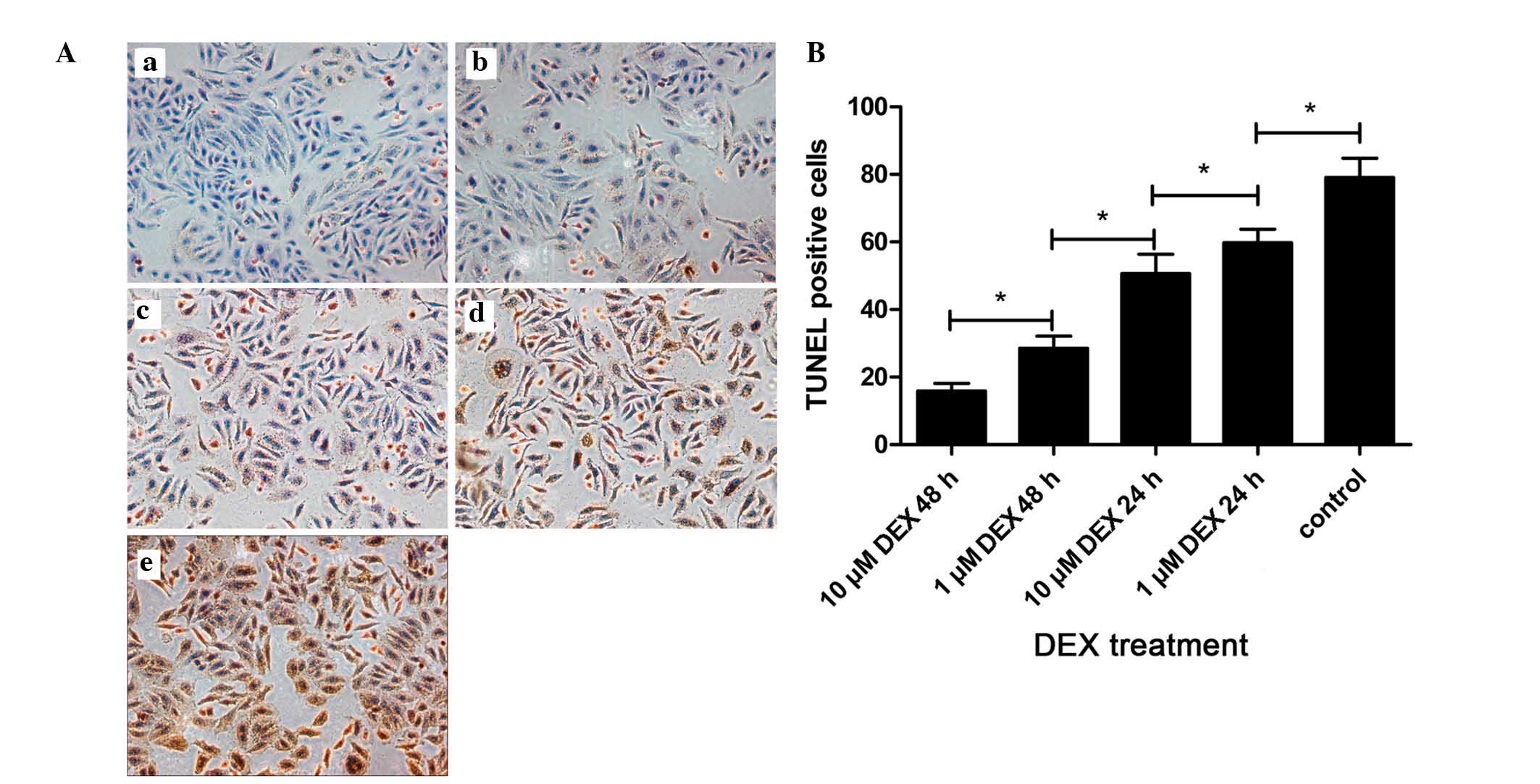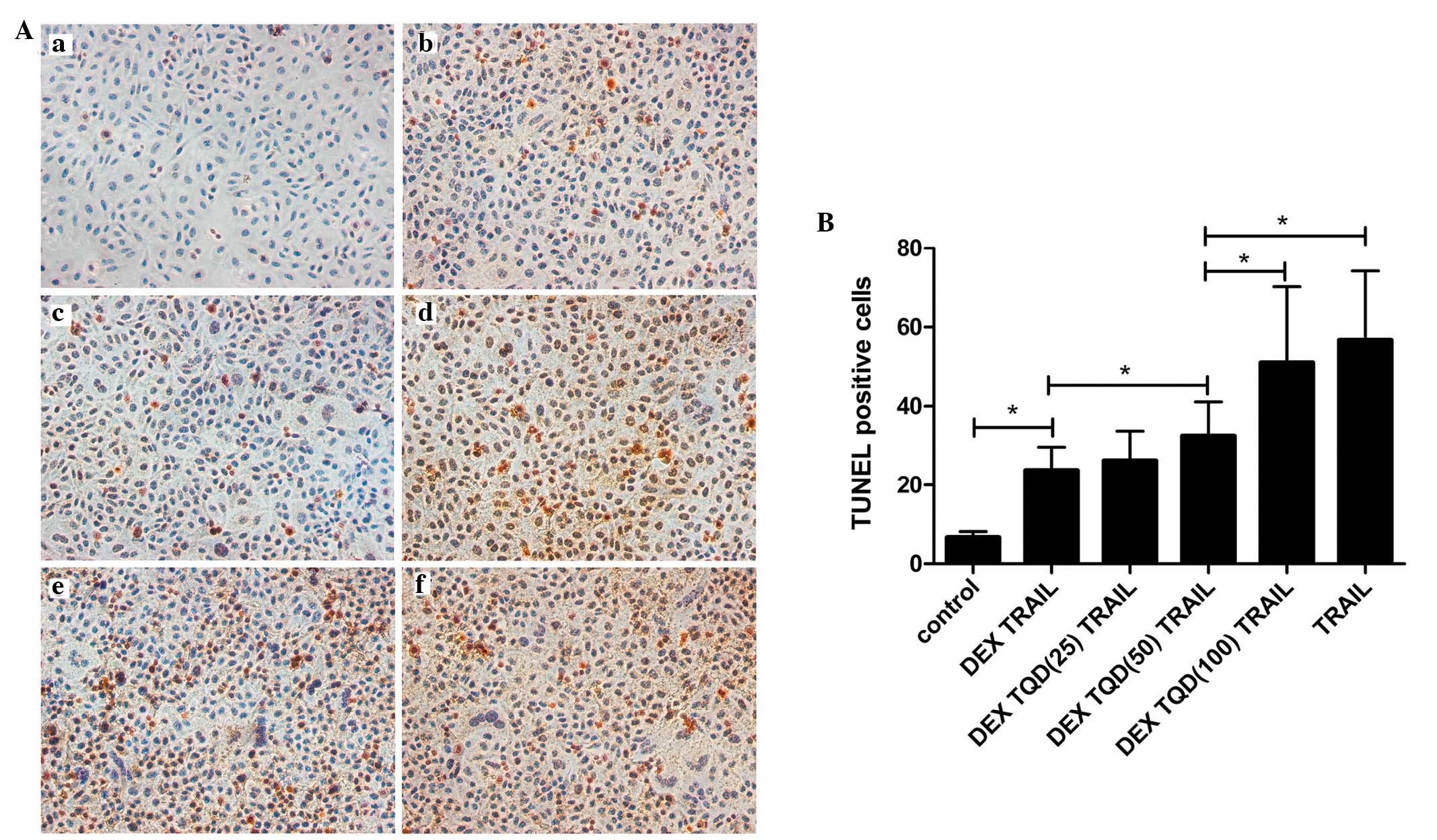|
1
|
Levy P, Marcellin P, Martinot-Peignoux M,
Degott C, Nataf J and Benhamou JP: Clinical course of spontaneous
reactivation of hepatitis B virus infection in patients with
chronic hepatitis B. Hepatology. 12:570–574. 1990. View Article : Google Scholar : PubMed/NCBI
|
|
2
|
Sarin SK, Kumar A, Almeida JA, Chawla YK,
Fan ST, Garg H, de Silva HJ, Hamid SS, Jalan R, Komolmit P, et al:
Acute-on-chronic liver failure: Consensus recommendations of the
Asian Pacific Association for the study of the liver (APASL).
Hepatol Int. 3:269–282. 2009. View Article : Google Scholar : PubMed/NCBI
|
|
3
|
Zhang XQ, Jiang L, You JP, Liu YY, Peng J,
Zhang HY, Xu BY and Mao Q: Efficacy of short-term dexamethasone
therapy in acute-on-chronic pre-liver failure. Hepatol Res.
41:46–53. 2011. View Article : Google Scholar
|
|
4
|
Fujiwara K, Yasui S, Yonemitsu Y, Fukai K,
Arai M, Imazeki F, Suzuki A, Suzuki H, Sadahiro T, Oda S and
Yokosuka O: Efficacy of combination therapy of antiviral and
immunosuppressive drugs for the treatment of severe acute
exacerbation of chronic hepatitis B. J Gastroenterol. 43:711–719.
2008. View Article : Google Scholar
|
|
5
|
Naveau S, Balian A, Capron F, Raynard B,
Fallik D, Agostini H, Grangeot-Keros L, Portier A, Galanaud P,
Chaput JC and Emilie D: Balance between pro and anti-inflammatory
cytokines in patients with acute alcoholic hepatitis. Gastroenterol
Clin Biol. 29:269–274. 2005. View Article : Google Scholar : PubMed/NCBI
|
|
6
|
Wang M, Shen F, Shi LH, Xi T, Li XF, Chen
X and Wu MC: Protective effect of prednisolone on ischemia-induced
liver injury in rats. World J Gastroenterol. 14:4332–4337. 2008.
View Article : Google Scholar : PubMed/NCBI
|
|
7
|
Thoresen GH, Gjone IH, Gladhaug IP,
Refsnes M, Ostby E and Christoffersen T: Studies of glucocorticoid
enhancement of the capacity of hepatocytes to accumulate cyclic
AMP. Pharmacol Toxicol. 65:175–180. 1989. View Article : Google Scholar : PubMed/NCBI
|
|
8
|
Jaeschke H, Gujral JS and Bajt ML:
Apoptosis and necrosis in liver disease. Liver Int. 24:85–89. 2004.
View Article : Google Scholar : PubMed/NCBI
|
|
9
|
Nieuwenhuis B, Lüth A and Kleuser B:
Dexamethasone protects human fibroblasts from apoptosis via an
S1P3-receptor subtype dependent activation of PKB/Akt and Bcl XL.
Pharmacol Res. 61:449–459. 2010. View Article : Google Scholar
|
|
10
|
Haake SM, Dinh CT, Chen S, Eshraghi AA and
Van De Water TR: Dexamethasone protects auditory hair cells against
TNFalpha-initiated apoptosis via activation of PI3K/Akt and
NFkappaB signaling. Hear Res. 255:22–32. 2009. View Article : Google Scholar : PubMed/NCBI
|
|
11
|
Li M, Chen F, Liu CP, Li DM, Li X, Wang C
and Li JC: Dexamethasone enhances trichosanthin-induced apoptosis
in the HepG2 hepatoma cell line. Life Sci. 86:10–16. 2010.
View Article : Google Scholar
|
|
12
|
Gottesman MM and Pastan I: Biochemistry of
multidrug resistance mediated by the multidrug transporter. Annu
Rev Biochem. 62:385–427. 1993. View Article : Google Scholar : PubMed/NCBI
|
|
13
|
Ambudkar SV, Dey S, Hrycyna CA,
Ramachandra M, Pastan I and Gottesman MM: Biochemical, cellular and
pharmacological aspects of the multidrug transporter. Annu Rev
Pharmacol Toxicol. 39:361–398. 1999. View Article : Google Scholar
|
|
14
|
Ruefli AA and Johnstone RW: A role for
P-glycoprotein in regulating cell growth and survival. Clin Appl
Immunol Rev. 4:31–47. 2003. View Article : Google Scholar
|
|
15
|
Ruefli AA, Tainton KM, Darcy PK, Smyth MJ
and Johnstone RW: P-glycoprotein inhibits caspase-8 activation but
not formation of the death inducing signal complex (disc) following
fas ligation. Cell Death Differ. 9:1266–1272. 2002. View Article : Google Scholar : PubMed/NCBI
|
|
16
|
Tainton KM, Smyth MJ, Jackson JT, Tanner
JE, Cerruti L, Jane SM, Darcy PK and Johnstone RW: Mutational
analysis of P-glycoprotein: Suppression of caspase activation in
the absence of ATP-dependent drug efflux. Cell Death Differ.
11:1028–1037. 2004. View Article : Google Scholar : PubMed/NCBI
|
|
17
|
Pallis M, Turzanski J, Grundy M, Seedhouse
C and Russell N: Resistance to spontaneous apoptosis in acute
myeloid leukaemia blasts is associated with p-glycoprotein
expression and function, but not with the presence of FLT3 internal
tandem duplications. Br J Haematol. 120:1009–1016. 2003. View Article : Google Scholar : PubMed/NCBI
|
|
18
|
Narang VS, Fraga C, Kumar N, Shen J, Throm
S, Stewart CF and Waters CM: Dexamethasone increases expression and
activity of multidrug resistance transporters at the rat
blood-brain barrier. Am J Physiol Cell Physiol. 295:C440–C450.
2008. View Article : Google Scholar : PubMed/NCBI
|
|
19
|
Chan GN, Saldivia V, Yang Y, Pang H, de
Lannoy I and Bendayan R: In vivo induction of P-glycoprotein
expression at the mouse blood-brain barrier: An intracerebral
microdialysis study. J Neurochem. 127:342–352. 2013. View Article : Google Scholar : PubMed/NCBI
|
|
20
|
Rigalli JP, Perdomo VG, Luquita MG,
Villanueva SS, Arias A, Theile D, Weiss J, Mottino AD, Ruiz ML and
Catania VA: Regulation of biotransformation systems and ABC
transporters by benznidazole in HepG2 cells: Involvement of
pregnane X-receptor. PLoS Negl Trop Dis. 6:e19512012. View Article : Google Scholar : PubMed/NCBI
|
|
21
|
Jigorel E, Le Vee M, Boursier-Neyret C,
Parmentier Y and Fardel O: Differential regulation of sinusoidal
and canalicular hepatic drug transporter expression by xenobiotics
activating drug-sensing receptors in primary human hepatocytes.
Drug Metab Dispos. 34:1756–1763. 2006. View Article : Google Scholar : PubMed/NCBI
|
|
22
|
Livak KJ and Schmittgen TD: Analysis of
relative gene expression data using real-time quantitative PCR and
the 2(-Delta Delta C(T)) Method. Methods. 25:402–408. 2001.
View Article : Google Scholar
|
|
23
|
Takeba Y, Sekine S, Kumai T, Matsumoto N,
Nakaya S, Tsuzuki Y, Yanagida Y, Nakano H, Asakura T, Ohtsubo T and
Kobayashi S: Irinotecan-induced apoptosis is inhibited by increased
P-glycoprotein expression and decreased p53 in human hepatocellular
carcinoma cells. Biol Pharm Bull. 30:1400–1406. 2007. View Article : Google Scholar : PubMed/NCBI
|
|
24
|
Sakaeda T, Nakamura T, Hirai M, Kimura T,
Wada A, Yagami T, Kobayashi H, Nagata S, Okamura N and Yoshikawa T:
MDR1 up-regulated by apoptotic stimuli suppresses apoptotic
signaling. Pharm Res. 19:1323–1329. 2002. View Article : Google Scholar : PubMed/NCBI
|
|
25
|
Salje K, Lederer K, Oswald S, Dazert E,
Warzok R and Siegmund W: Effects of rifampicin, dexamethasone, St.
John's Wort and thyroxine on maternal and foetal expression of
Abcb1 and organ distribution of talinolol in pregnant rats. Basic
Clin Pharmacol Toxicol. 111:99–105. 2012.PubMed/NCBI
|
|
26
|
Petropoulos S, Gibb W and Matthews SG:
Effect of glucocorticoids on regulation of placental multidrug
resistance phosphoglycoprotein (P-gp) in the mouse. Placenta.
31:803–810. 2010. View Article : Google Scholar : PubMed/NCBI
|
|
27
|
Nishimura M, Koeda A, Morikawa H, Satoh T,
Narimatsu S and Naito S: Comparison of inducibility of multidrug
resistance (MDR)1, multidrug resistance-associated protein (MRP)1
and MRP2 mRNAs by prototypical microsomal enzyme inducers in
primary cultures of human and cynomolgus monkey hepatocytes. Biol
Pharm Bull. 31:2068–2072. 2008. View Article : Google Scholar : PubMed/NCBI
|
|
28
|
Mark PJ, Augustus S, Lewis JL, Hewitt DP
and Waddell BJ: Changes in the placental glucocorticoid barrier
during rat pregnancy: Impact on placental corticosterone levels and
regulation by progesterone. Biol Reprod. 80:1209–1215. 2009.
View Article : Google Scholar : PubMed/NCBI
|
|
29
|
Yumoto R, Murakami T, Sanemasa M, Nasu R,
Nagai J and Takano M: Pharmacokinetic interaction of cytochrome
P450 3A-related compounds with rhodamine 123, a P-glycoprotein
substrate, in rats pretreated with dexamethasone. Drug Metab
Dispos. 29:145–151. 2001.PubMed/NCBI
|
|
30
|
Demeule M, Jodoin J, Beaulieu E, Brossard
M and Béliveau R: Dexamethasone modulation of multidrug
transporters in normal tissues. FEBS Lett. 442:208–214. 1999.
View Article : Google Scholar : PubMed/NCBI
|
|
31
|
Maier A, Zimmermann C, Beglinger C, Drewe
J and Gutmann H: Effects of budesonide on P-glycoprotein expression
in intestinal cell lines. Br J Pharmacol. 150:361–368. 2007.
View Article : Google Scholar
|
|
32
|
Katayama K, Noguchi K and Sugimoto Y:
FBXO15 regulates P-glycoprotein/ABCB1 expression through the
ubiquitin-proteasome pathway in cancer cells. Cancer Sci.
104:694–702. 2013. View Article : Google Scholar : PubMed/NCBI
|
|
33
|
Micuda S, Fuksa L, Mundlova L,
Osterreicher J, Mokry J, Cermanova J, Brcakova E, Staud F, Pokorna
P and Martinkova J: Morphological and functional changes in
p-glycoprotein during dexamethasone-induced hepatomegaly. Clin Exp
Pharmacol Physiol. 34:296–303. 2007. View Article : Google Scholar : PubMed/NCBI
|
|
34
|
Mizutani T and Hattori A: New horizon of
MDR1 (P-glycoprotein) study. Drug Metab Rev. 37:489–510. 2005.
View Article : Google Scholar : PubMed/NCBI
|















